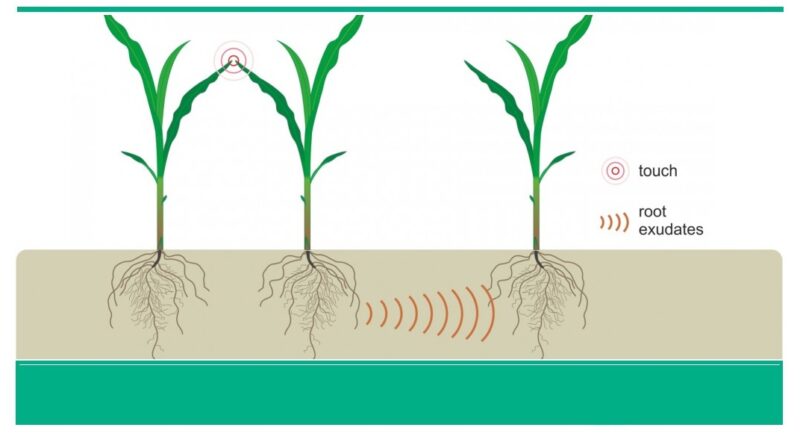Plants Communicate by Sniffing Each Other’s Aromas
One-fifth of the world’s total crop production is destroyed by insects annually. Hitting the temperate zones hardest, climate change worsens the condition.
Despite the fact that plants seem defenseless because they cannot escape from their enemies but they can deter insects by the deployment of chemical toxins. Certain toxins usually function by making the plant taste bitter, inhibiting herbivorous insects’ digestive enzymes, and disrupting their metabolism or poisoning them.
Furthermore, when plants are hurt they emit perfumed chemical signals into the air, called volatiles, to warn neighbor’s imminent threats.
Professor Matthias Erb, a plant scientist at the University of Bern, Switzerland investigates the volatiles as a project known as PERVOL.
Deciphering the mechanism of these chemicals could lead to developing natural compounds to protect crops against predator insects.
The puzzling part of this research was how plants sniff out volatiles in the first place in spite of not having a nose like us?
Scientists hypothesized that volatiles enters through small pores in leaves named stomata. Volatiles bind to the probable protein sensors that exist inside the leaf.
According to Dr. Allmann who is researching these sensors, discovering these receptors could help to design a type of ligands to bind them and switch them on.
Also, it is predicted that plants could be bred to be more or less sensitive to volatiles to serve as sentinels to warn other plants nearby.
Utilization of plant volatiles would be a useful and more environmentally friendly way in agriculture. These kinds of bioactive chemicals can trigger specific reactions in order to boost plant immunity or resistance to herbivory stress.
In addition insights into how plants detect warning smells could also allow farmers to develop crop varieties that are responsive to the signals.

